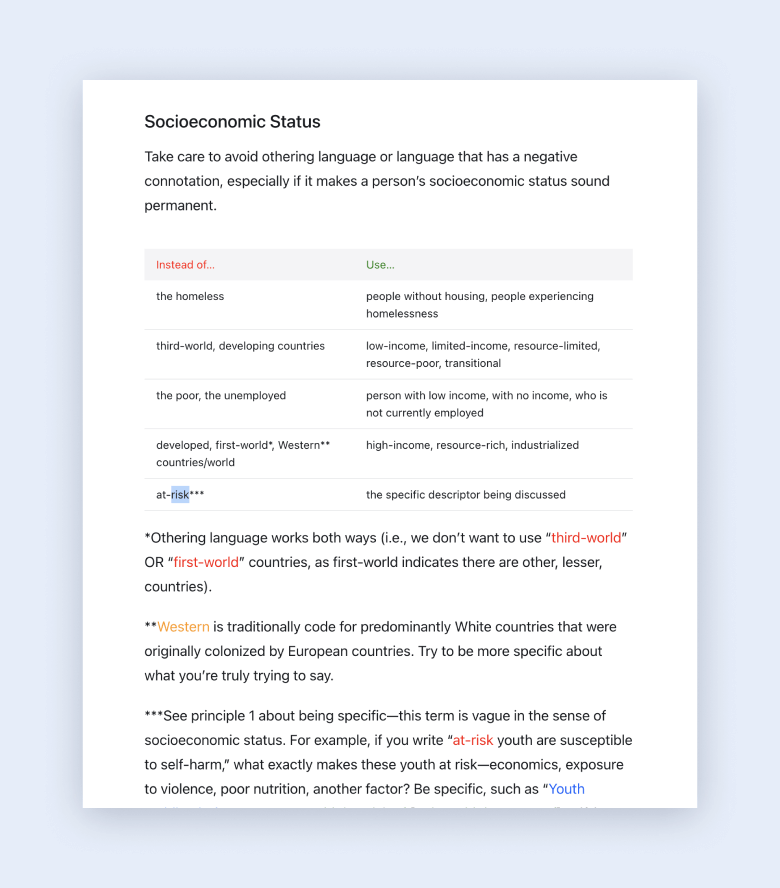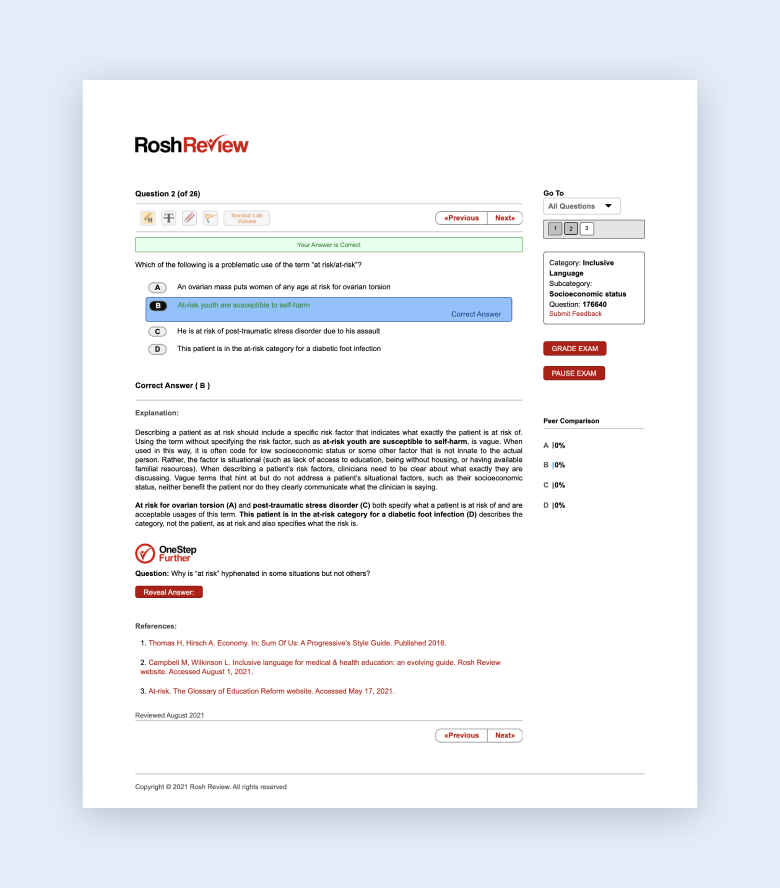Why is inclusive language important in medicine?
The language we are taught affects how we interact with patients and our colleagues. What we say and how we say it matters—one word has the power to include or exclude, welcome or dismiss, or make someone feel important or inferior.
alcohol use
In Your Qbank
Every question in your Rosh Review Qbank has been written using identity-informed language—because building medical knowledge is so much more than just passing exams.
Make A Change – For Free
Use these free, actionable resources to practice using inclusive language in medicine.

Inclusive Language Guide
Covers race & ethnicity, gender, sexuality, disability, socioeconomic status, and more. Build a foundation of knowledge with this evolving guide focused on medical education through a socially-conscious lens.
View Free Guide
Inclusive Language Quiz
Quiz for a Cause included in your Qbank Boost Box. Put your knowledge into action with real-life scenarios using inclusive language with patients.
Get Free Access
As medical professionals, we are in the unique position to guide the future generation of health professionals toward equity and belonging—in our language, interactions, and workplaces. We stand shoulder to shoulder with you as you work to make medicine more inclusive of all identities and backgrounds.
